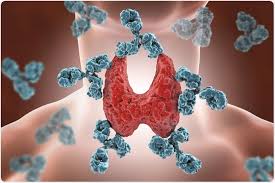Vitamin D, often referred to as the "sunshine vitamin," is essential for a well-functioning immune system. It is a fat-soluble vitamin produced by the skin in response to sunlight and can also be obtained from specific foods and supplements. While its role in bone health is widely known, vitamin D is equally critical in supporting immune health. By activating immune cells and reducing inflammation, it helps protect the body against infections, diseases, and chronic inflammation.
In this article, we’ll explore how vitamin D strengthens immunity, its role in fighting infections, and natural ways to maintain optimal vitamin D levels for a healthier life.
1. The Role of vitamin D in the Immune System
Vitamin D acts as a key regulator for the immune system, ensuring that it responds efficiently to pathogens without becoming overactive.
- Activating Immune Cells: Vitamin D enhances the activity of key immune cells, including T-cells and macrophages, which are responsible for detecting and fighting pathogens like viruses and bacteria. Without adequate vitamin D, these immune cells remain dormant and less effective.
- Reducing Inflammation: Chronic inflammation can weaken the immune system and lead to diseases such as autoimmune disorders. Vitamin D helps balance the inflammatory response, preventing the immune system from attacking healthy tissues.
How It Works:
When the body detects an infection, vitamin D stimulates the production of antimicrobial peptides like catholicizing, which act as natural antibiotics to fight off pathogens. This helps prevent infections while also speeding up recovery.
2. Vitamin D and Respiratory Infections
Respiratory infections, including colds, flu, and pneumonia, are among the most common health issues worldwide. Research has shown that individuals with low vitamin D levels are more susceptible to these infections.
-
Evidence and Studies:
A 2017 study published in the BMJ found that vitamin D supplementation reduced the risk of acute respiratory infections, especially in people with a deficiency. During the COVID-19 pandemic, several studies highlighted vitamin D’s role in reducing severe outcomes, such as hospitalization and death, in patients with respiratory infections. -
Why It Helps:
Vitamin D strengthens the respiratory tract's immune defenses by supporting epithelial cells that line the lungs and airways. It also helps control inflammation in the lungs, which can worsen respiratory conditions.
Key Insight: People with vitamin D deficiency are 2–3 times more likely to develop respiratory illnesses compared to those with adequate levels.
3. How vitamin D Deficiency Weakens Immunity
Vitamin D deficiency is alarmingly common, affecting nearly 1 billion people globally. Factors such as modern indoor lifestyles, limited sun exposure, aging, and poor diets contribute to this widespread issue.
How Deficiency Impacts Immunity:
- Reduced ability to fight infections, such as colds and flu.
- Increased risk of autoimmune diseases like multiple sclerosis, rheumatoid arthritis, and type 1 diabetes.
- Chronic fatigue, muscle weakness, and slow recovery from illness.
Symptoms of Deficiency:
- Frequent illnesses or infections
- Fatigue and lethargy
- Bone pain and muscle weakness
- Mood changes, such as depression
High-Risk Groups:
- Elderly individuals (aging skin produces less vitamin D).
- People with darker skin tones (higher melanin reduces vitamin D synthesis).
- Those living in northern latitudes with limited sunlight exposure.
- Individuals with chronic diseases, obesity, or digestive disorders.

4. Natural Ways to Boost vitamin D Levels
Maintaining adequate vitamin D levels is essential for a robust immune system. Here are natural and effective ways to increase your vitamin D intake:
a. Sunlight Exposure
Sunlight is the most effective way to produce vitamin D naturally. When ultraviolet B (UVB) rays hit the skin, they trigger the production of vitamin D.
- How Much Do You Need?: Aim for 15–30 minutes of direct sunlight on your face, arms, and legs at least 3–4 times a week.
- Best Time: Midday sunlight is most effective, as UVB rays are strongest.
Tip: Be cautious of excessive sun exposure to avoid sunburn. For individuals with limited access to sunlight, alternatives like diet and supplements are crucial.
b. Dietary Sources
Include Vitamin D-rich foods in your daily diet to support immune health:
- Fatty fish (salmon, mackerel, sardines, tuna)
- Cod liver oil
- Fortified foods (milk, orange juice, cereals, and plant-based alternatives)
- Egg yolks and mushrooms
c. Supplements
For individuals with significant deficiencies or limited sun exposure, vitamin D supplements can be highly effective.
- Types of Supplements: Vitamin D3 (cholecalciferol) is the most efficient form for raising blood levels.
- Dosage: Consult a healthcare provider to determine the correct dosage based on your vitamin D levels.
d. Testing and Monitoring
Regular blood tests can measure your vitamin D levels and help identify deficiencies. Optimal levels typically range between 20-50 ng/mL.

5. Vitamin D and Autoimmune Disease Prevention
Autoimmune diseases occur when the immune system mistakenly attacks healthy cells. Vitamin D helps regulate this response, reducing the risk of autoimmune disorders like lupus, type 1 diabetes, and multiple sclerosis.
- Research Insight: A 2018 study in Frontiers in Immunology showed that individuals with higher vitamin D levels had a lower incidence of autoimmune diseases.
By modulating the immune response, vitamin D prevents overactive immunity while maintaining strong defenses against harmful pathogens.
Conclusion
Vitamin D is a cornerstone of immune health, helping the body fight infections, reduce inflammation, and prevent diseases. Deficiency not only weakens immunity but also increases the risk of respiratory illnesses and autoimmune conditions. Fortunately, by spending time in sunlight, consuming Vitamin D-rich foods, and using supplements when needed, you can naturally maintain optimal levels.
Prioritizing vitamin D is a simple yet powerful step to protect your health and support your immune system naturally. Start today—your immune system will thank you!


You must be logged in to post a comment.